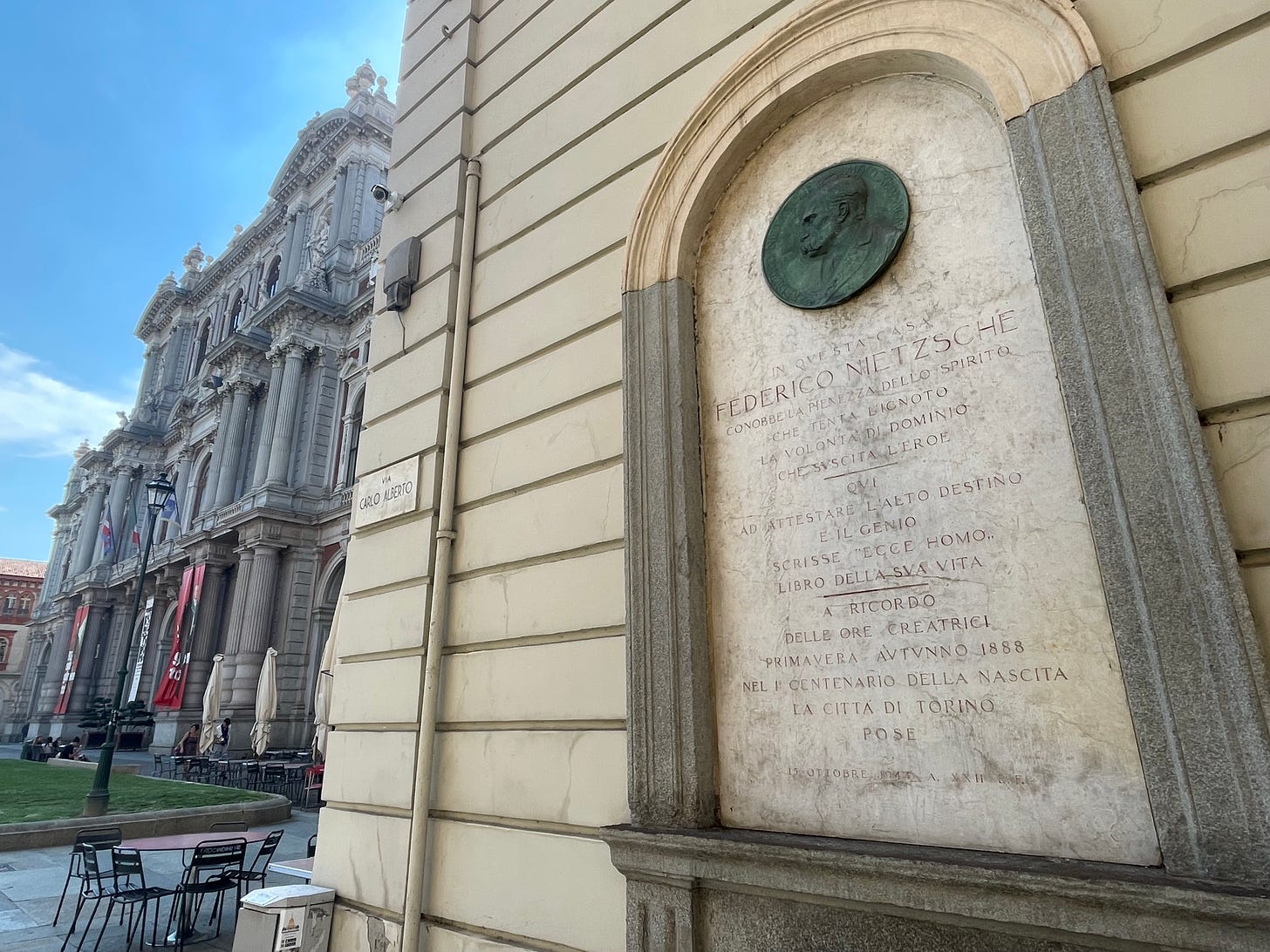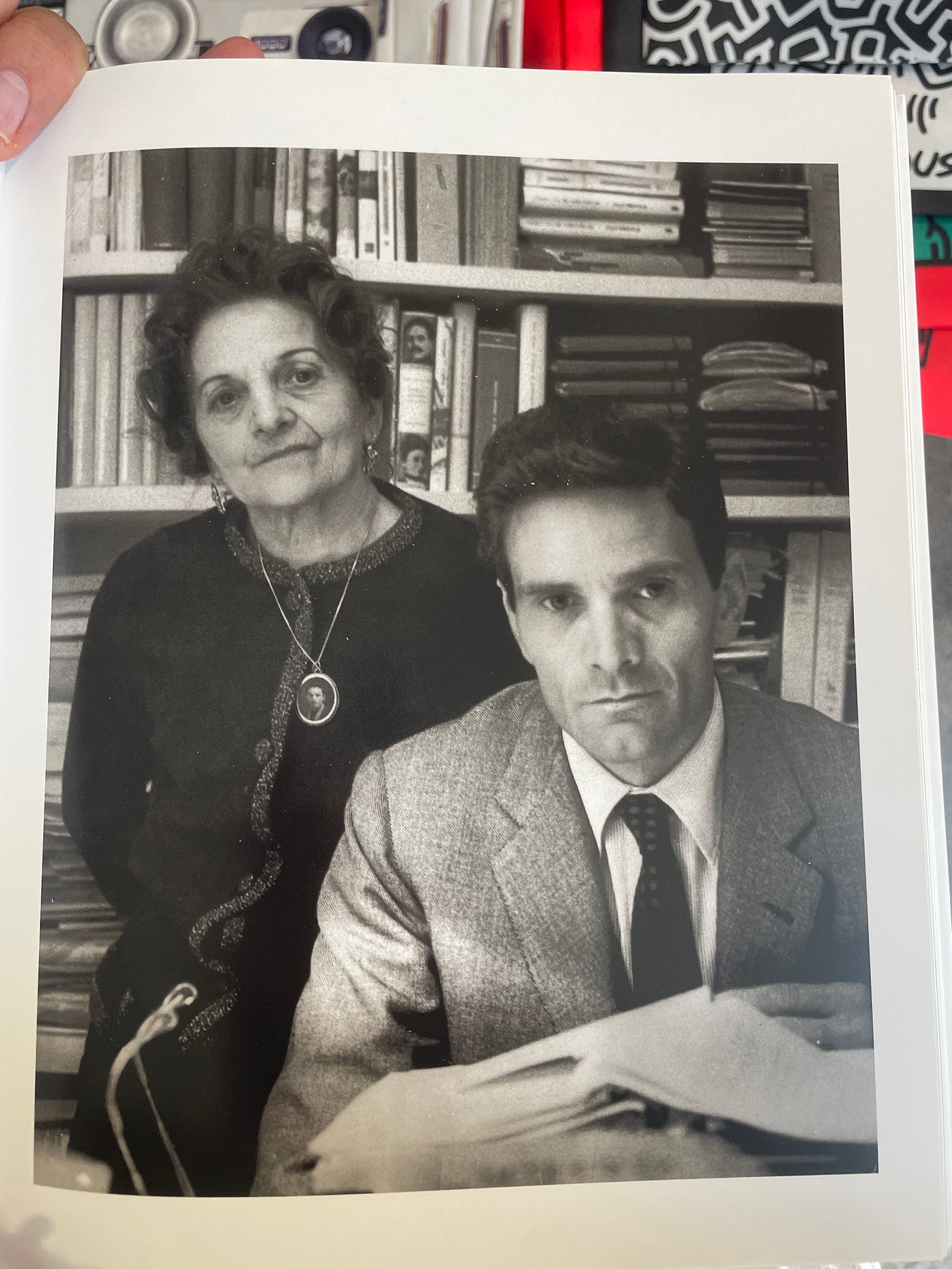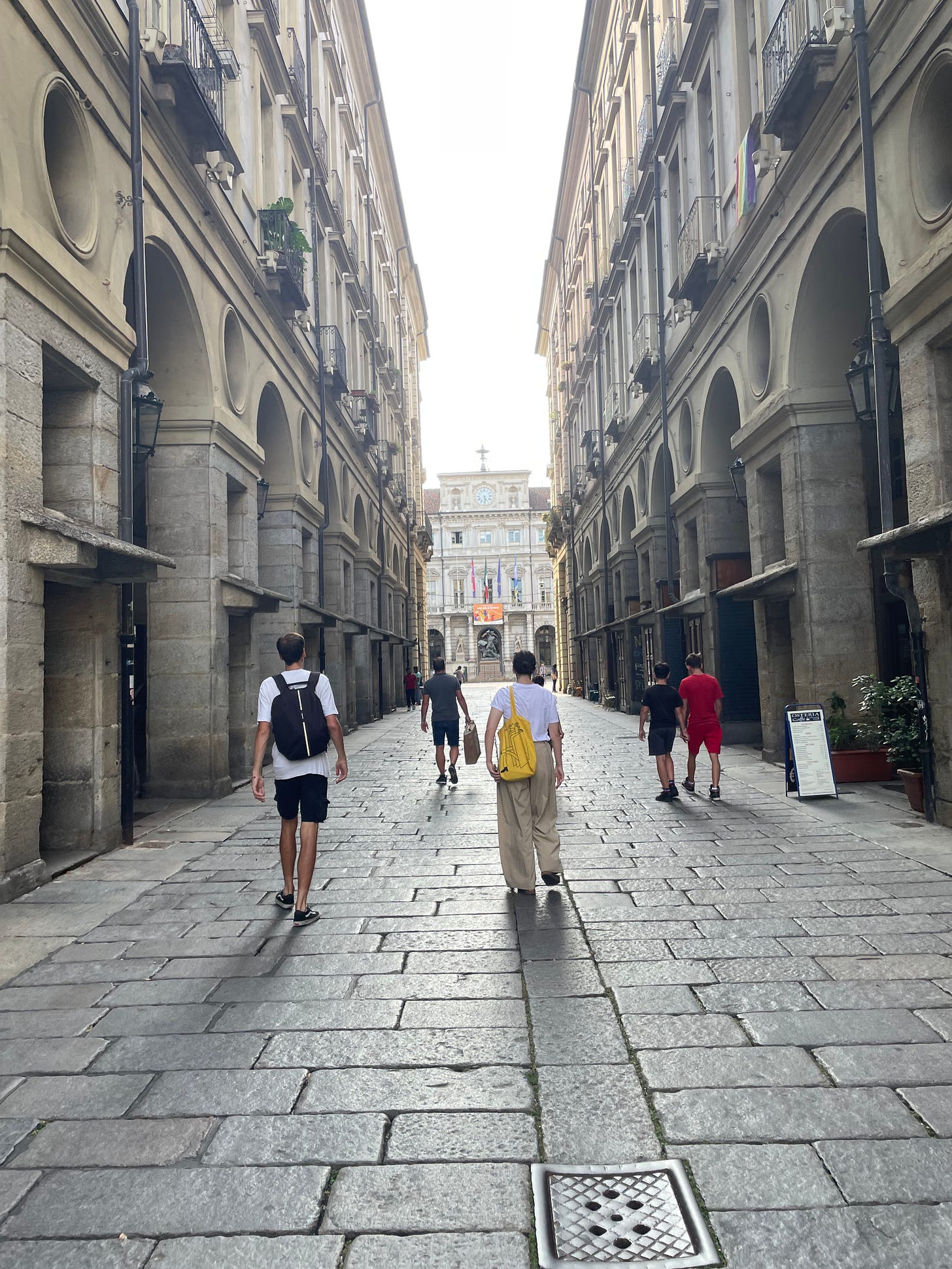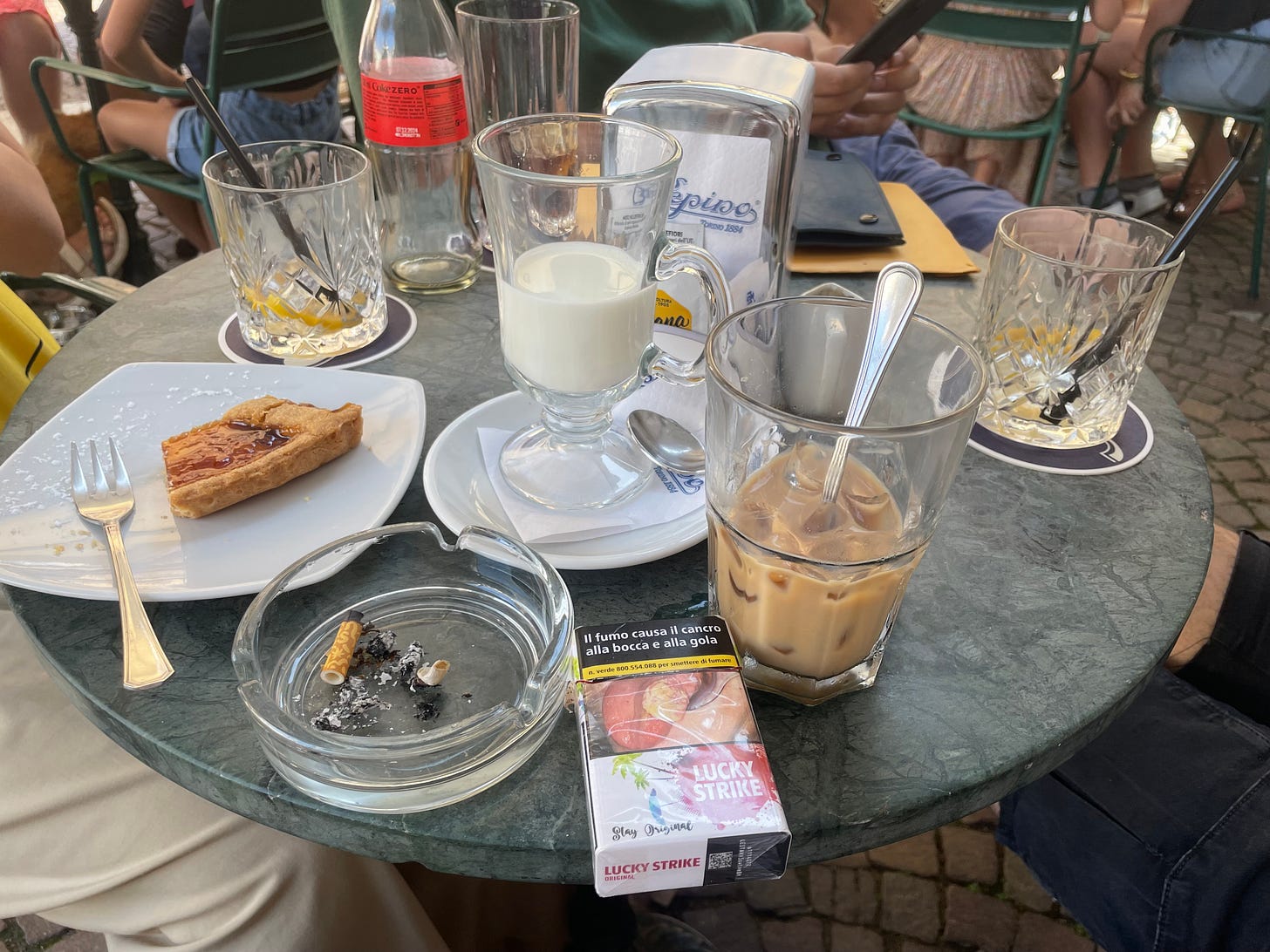Many of you DMed me to ask if I’d be attending the Hegelian E-girl summit. I took great offense at this, and I’m keeping the receipts.
JK. I couldn’t have gone even if I wanted to since I’ve been in the motherland(s) the last few days. But I included some comments from a colleague who attended it in my newsletter for
this week, in case you’re interested.More importantly, I visited the apartment where Nietzsche wrote Ecce Homo, which I also wrote about in the newsletter:
The Hegelian e-girl summit has inspired some X-users to call for a similar gathering of Nietzschean e-boys. Though I’m neither a Nietzschean nor an e-boy, I must confess to having had a bit of a “fanboy” moment while in Turin, Italy yesterday upon visiting the apartment in which Nietzsche wrote Ecce Homo.
This site is just a stone’s throw from where he suffered his syphilitic mental breakdown after seeing a horse get beaten to death. I prayed that God have mercy on his soul (for real tho, I’d love to talk to him in heaven).
I also wrote about how Ashley Frawley’s excellent piece in Compact this week made me think about the work of the great queer Italian writers Pier Paolo Pasolini and Giovanni Testori.
Earlier in the week, Ashley Frawley’s piece—which I read while seated at an outdoor cafe in one of the city’s many picturesque piazzas—made me think back to Pasolini, who I cited in the newsletter a few weeks ago. I also thought of Giovanni Testori, a contemporary of Pasolini who in a discussion with Monsignor Luigi Giussani warned of the growth of “impersonal” global entities “without a physiognomy” that operate at a distance from “place, from concreteness.” Testori continues,
even in the great powers, power always coincides less with the face of the one who nominally holds it: the face of Carter, the face of Brezhnev. It is no longer like it was some ten years ago. You could still see Kennedy; you could still see Stalin. They were what they were, but they still had their faces.
Today we proceed to powers that no longer have physical faces, faces in which the memory of man can recognize itself, however distorted or disfigured. Having wanted to take away…the presence, the seal, the imprint of the Father—the political powers have also become machines— monstrosities, abstractions.
Pasolini and Testori’s warnings turn out to be hauntingly true. In Italy, identitarian diversity rhetoric and “therapy-speak” are now widespread. The youth culture continues to be pervaded by that of the United States. The food culture, whose sacredness reaches quasi-sacramental levels, is being diluted by fast food joints and artificial ingredients. Even America’s puritanical stigmatization of cigarette smoking is starting to gain traction.
On the bright side, Italy’s strong cultural legacy has managed to resist being completely washed away by the waves of the expanding global monoculture. Take the historic architecture and gorgeous churches, which are protected by policies and are revered by the public.
Personally, I was relieved to see that the American tendency to blast air conditioning has yet to make its way over, nor its enshrining of “customer service.” I’m always shocked that the friendliness of waiters is motivated not by tips, but by their genuine congeniality. Unlike in the United States, their kindness comes off not as forced or artificial, but as spontaneous and organic. Sure, they’re not exactly quick to get around to taking your order, and they might cut out for a minute (or 10) for a smoke break. But there’s something about their demeanor that puts you more at ease than the efficient, overly-accommodating American waiter, who seethes with resentment after you send your dish back to the kitchen.
It all makes you wonder why there are less occurrences of depression, suicide, and mass shootings here…
Off to the other motherland. More top notch cultural anthropology coming your way soon…








